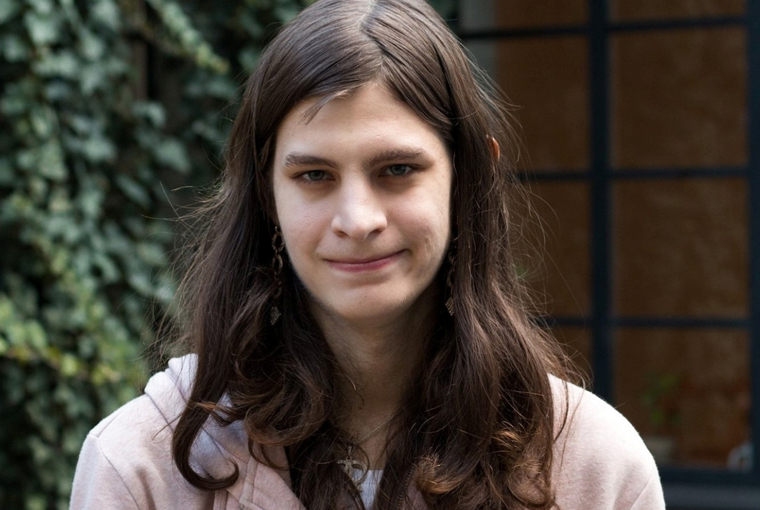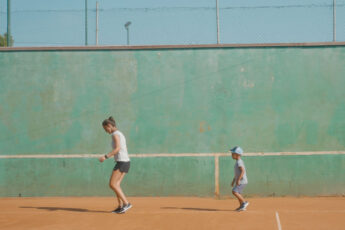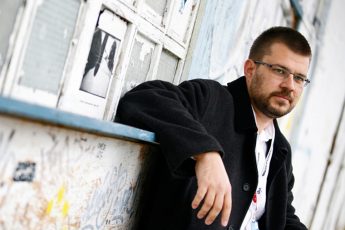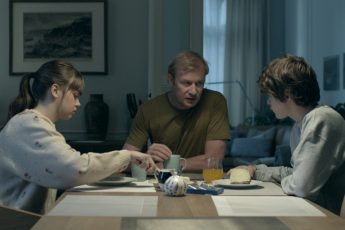
We met Georgia Hejduková – a politician of the Czech Pirates party – during the 2022 One World Festival in Prague (March 21-April 3). We met Hejduková to speak to her about her political career, and about Jan Gebert’s “The Candidates”, which portrays her and a fellow Czech politician.
You were approached by Jan Gebert to take part in The Candidates. Do you know if he chose your co-protagonist Tereza Hyťhová after you had confirmed, or did he always have this juxtaposition in mind?
I honestly don’t know, so you would have to ask him. When I was approached, I only knew there would be several people from various sides of the political spectrum. As far as I can remember, I only learned of Tereza after four months of recording though. I don’t know if he approached her before or after me.
The film seems to be a deliberate comparison of two young women from opposing perspectives.
Yeah. I believe it’s an interesting comparison, but I didn’t know about the exact set-up at the time when I agreed to take part in the project. But you see, it’s a challenge like everything else in my life.
Can I ask how old you are now? During filming you were in secondary school?
Yeah, I’m a bit older because I had to take a break from high school for health reasons. However, I am now finishing school and applying to university. And I’m 22 years old. So I am about 5 years younger than Tereza.
You mentioned that you’ve faced some struggles, but I get the impression from the film that you are very resilient.
Obviously when you overcome obstacles, you become stronger, but I just think that I always had the will, and I don’t know if I was born with the will… I also have a lot of energy, I was always wanting to keep everything positive. I’m trying to stay positive and optimistic and that’s the reason why I overcame everything.
In the film, you explain that you’re an optimistic person and that that’s the reason why you’re in politics. After having gained more experience, do you still feel that way or do you now have to make an effort to remain optimistic?
Of course, I am still an optimist. You can’t stay optimistic at all times, especially as things get depressing and challenging. But in the end, like I said politics are very enjoyable. They’re filled with action, which is something that I really like, and I can ultimately do something good for this country and for the world, which is what is most important for me.
Tereza seems to experience some of the same issues as you, but she reacts to them in a different way. She mentions people being left behind, but her vision of who those people are and what they deserve is very different from yours. How do you feel about that?
Well, everyone makes different life experiences and I believe everything that we do, wish, and think, is rooted in our experience. I believe that my personal life experience has taught me that being open and accepting promises you a good outcome. Tereza probably has a different view on that and that’s completely fine because she is obviously entitled to her own opinion. I just think that we should nevertheless establish a dialogue between each other. Not only between us as individuals, but also between the opposing sides because we need to find common ground, and I do believe there is common ground to be found. That is where we can build something larger together. Sometimes it might be difficult because Tereza has many opinions that I would very much disagree with, and I have opinions that she would disagree with, but ultimately politics are about finding compromises. It’s not about just pushing through your own ideas, it’s about starting a conversation with the other side and I believe that is something that we will be able to accomplish in the end.
Did you grow up in Prague?
Yeah, I am very much a Prague-based person.
Do you think it has affected Tereza a lot that she grew up in a completely different environment? It is well-known that Prague is a much more liberal place than the rest of the Czech Republic.
I think that is definitely a factor. There are probably other factors too. For example, her family is definitely an influence, while I have very liberal parents. Maybe the environment that she grew up in and where she went to school, maybe her expceriences were different. Prague is definitely a liberal city. At the same time, it isn’t just about that, and I believe these issues need to be looked at from a more complex vantage point, it isn’t just about Prague vs. the rest of the country. It is much more complicated than that.
I noticed that when Tereza talks about Ústí nad Labem, she talks about how it hasn’t changed in so many years, and how it is a bit of a dead zone. There’s an element of class division in her experience, of being ignored and being excluded from society. In the cinema theater, the Prague audience was laughing a lot at the comments she makes, but then again there are many people around the Czech Republic who very much agree with her. Does it scare you that hateful views can spread so easily and gain support?
I don’t think it scares me, I think it should not scare me and I think it should not scare anyone because again, it is about understanding each other. I don’t think we have a right to devalue people’s feelings because it is crucial for us to understand why they feel this way. If they feel like their region has been forgotten, which is the case in regions like Ústí, which is very, very, poor compared to other regions of the country, we need to help them not to feel that way. If they’re left behind, these feelings are only going to get more extreme and it’s going to be more difficult to find that common ground that we all deeply desire.
Speaking of extremism, what is it like to receive death threats and face a tone of violence against you?
As you may have noticed from the documentary, where it was mentioned, I’m a transgender person, which seems like an outrageous idea in the context of Czech politics.
I could see it when you got up to speak at a council meeting with the mayor of Prague and everyone angrily turns their eyes away from you…
Actually, it can get even worse than that. I once received a call from a random telephone number and basically the person screamed, “Well you are just idiots up there and I am going to end you all”. I also received a direct threat online when someone told me that people like this, referring to transgender people, should be put on a pike inserted through their vaginas. Obviously, I went to press charges on that person because I believe this is a threat to others as well, so I fought it and the law upheld my rights and I won. I didn’t want money, I wanted an apology and I wanted a lesson to be learned. I believe I taught him a lesson. These are the small steps that we need to take to make the world more understanding of this community and to make them see that they have crossed a line. Facing a death threat and having to live through that is a kind of roller coaster ride. Sometimes there are none, but I remember there was a moment where articles were being published about me every single day and I was scared of what could pop up about me at any given moment. After about three or four days I got pretty scared, and I had to take a break. It is challenging, but I did choose this job.
That doesn’t mean you deserve death threats because of your gender identity.
True, nobody deserves this. But my hope is that I’m breaking the barrier for someone else. There will probably be other transgender people who enter politics after me, and they will not face the same level of outrage because I already faced it for them. If this is going to be the only thing I do, I believe that my mission would still be accomplished. I am not looking to become president, I’m just there to make the world a better place and I think I have done that a little bit. I’m obviously going to continue because it’s still fun, it’s still a challenge and every day there is a new challenge I can face, but I already see that I have accomplished something.
You mentioned in the film that you want to move in the direction of legal studies. I imagine you may be interested in social rights?
Yeah definitely, I want to study human rights. They are very important to me because I believe they are the key to making this world more humane. I believe that if everybody respected human rights, there would hardly be any problems. Unfortunately, that is far from being the case and that means we need to work more on education, on improving our human rights laws, on making them accessible to everyone and on helping people understand them. That’s the only way we can really improve political reality – through gradual education and by gradually constructing complex relationships with people who are not so understanding now, but who I strongly believe will be understanding in the future.
When we have parties with stronger values, people tend to be scared to place their vote with them because they don’t think they will win and so they opt for a more centrist party. How do you feel about this style of tactical voting?
You should always vote for the party that you are comfortable with, not just based on their values but also on whether the candidates are going to do a good job. That’s something you need to look for when you are picking your candidates because it isn’t just about their opinions, it’s also about the way they are going to do their job, which can vary no matter whether you’re a leftist, right-wing or a centrist. There have been very, very great politicians on both sides of the spectrum, and I believe they are the kinds of people we should be emulating and seeking out.
Thank you for the interview.




Leave a Comment